Updated October 6

What's Going On in Utah?
Marriage has been legalized in Utah. The U.S. Supreme Court decided not to take up a marriage equality case in Utah.
In the last year, gay and lesbian couples have met with considerable success in Utah. In the case Kitchen v. Herbert, two separate federal courts have ruled that the state's marriage ban is unconstitutional. After the first court ruled in 2013, more than 1,300 couples obtained marriage licenses before the U.S. Supreme Court stayed the decision, halting weddings.
After having lost twice in the Kitchen case, the state of Utah petitioned the U.S. Supreme Court for one last chance at upholding its marriage ban. The court rejected that attempt, and couples are marrying now.
There was also a second case regarding same-sex marriage in the state, Evans v. Utah. That case concerned marriage recognition for the 1,300 couples who obtained marriage licenses during Utah's 17-day equality window. Earlier this year, a federal judge ruled that Utah must recognize those couples' unions. The state appealed that decision, and the 10th Circuit is now considering that appeal. With marriage now legal in Utah, that case is likely to be quickly resolved in favor of the plaintiffs.

What Happens Next?
Because Oklahoma and Utah are both in the Tenth Circuit Court of Appeals, the Supreme Court's decision means that the lower appellate ruling is now precedent for Colorado, Kansas, New Mexico, and Wyoming.
Marriage is already legal in New Mexico. In the remaining states, there are one or more marriage cases pending in federal court. The courts will still have to issue final decisions in those pending cases, so officials can't start issuing licenses yet. But now that the Supreme Court has declined to hear an appeal, the remaining litigation is likely to conclude very quickly.
Couples could begin obtaining marriage licenses in those remaining states before the end of the year.

How Do Utahans Feel About Marriage?
Marriage comes at an interesting time for Utah. Next year is the 20-year anniversary of the "Recognition of Marriages" bill that banned same-sex marriage, the country's first Defense of Marriage Act-type bill enacted at the state level. At the time research indicated that only about 12 percent of Utah residents supported marriage equality.
This year also marks a decade since voters enshrined the ban on same-sex marriage into the state's constitution via Amendment 3, which was passed with the support of 66 percent of voters in 2004. Just 34 percent of voters opposed the ban at that time.
But the state is gradually moving toward greater acceptance. A survey conducted in September 2014 by Freedom to Marry shows support at 49 percent, with opposition at 48 percent. A survey conducted in January of 2014 switches those numbers, putting support at 48 percent and opposition at 49 percent. Other surveys from that time period show a larger gap, so while it's hard to place the exact level of public support, all data indicate that support is growing.

Can Gay and Lesbian Couples Get Married in Utah?
Yes. Marriage has resumed, nearly a year after a brief window during which licenses were initially offered.
There was a brief window at the end of 2013 during which gay and lesbian couples could wed. The legality of those marriages is now in question.
Marriages would resume if the U.S. Supreme Court denies a rehearing in Kitchen v. Herbert. In that case, the appellate decision finding Utah's ban unconstitutional would stand. This could happen at any time, and the state would be required to begin issuing marriage licenses immediately. Although this is within the realm of possibility, it's more likely that the Supreme Court will take more time to issue a final decision in the case.

What Were the Arguments for Marriage Equality?
In their brief to the U.S. Supreme Court, the Utah plaintiffs argue that the marriage ban is unconstitutional because it denies them a fundamental right: the right to marry. They cite several prior Supreme Court cases, and point out that the state cannot demonstrate that "sexual complementariness" has anything to do with previous cases establishing the right to marry.
The plaintiffs also argue that the ban violates their constitutional right to equal protection, as Utah's laws treat individuals differently based on their gender.
Furthermore, they point out that the ban has no rational basis. Denying access to marriage has no plausible connection to fostering healthy opposite-sex relationships, and does not rationally further the goal of raising healthy children, argue the plaintiffs.
The brief goes on to point out that the sole purpose and effect of Utah's law is to "impose a disadvantage, a separate status, and so a stigma." This is not constitutionally permissible.

What Were the Arguments Against Marriage Equality?
In its petition to the Supreme Court, the state of Utah argues that same-sex marriage is comparable to statutory rape, incest, polygamy, and coercive marriages. There is no fundamental right to marriage, the state claims.
Utah also argues that the marriage ban is not subject to strict scrutiny, since the state claims there is no fundamental right to marriage.
Further, according to Utah, extending marriage to opposite-sex couples encourages family stability, and rational basis permits the the state to enact under-inclusive laws, such as marriage laws that do not extend to gay and lesbian couples.
Utah claims that "social-science experts cannot agree" whether gay and lesbian parents are inferior to straight parents. This is not true.
Photos above are screen grabs sourced from the video below:
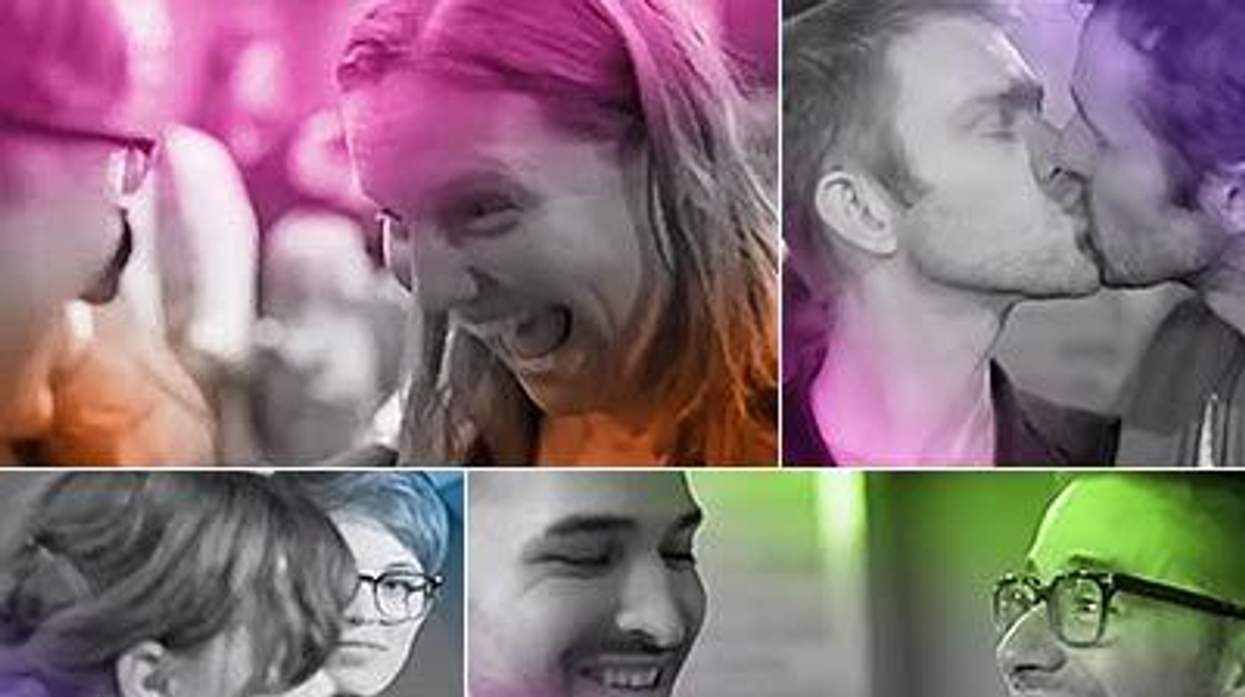

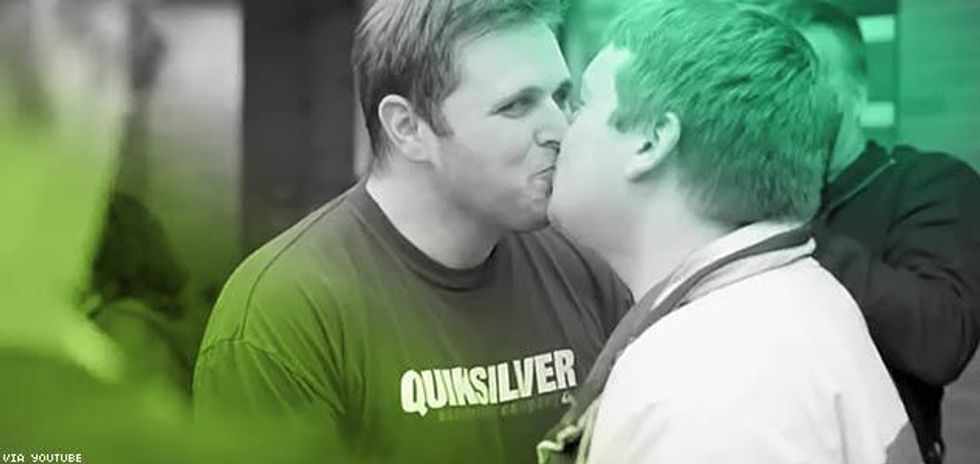

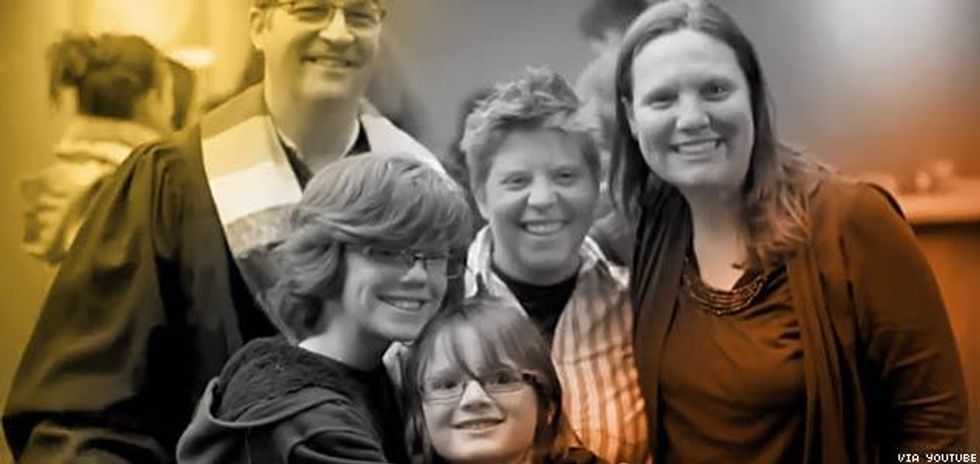

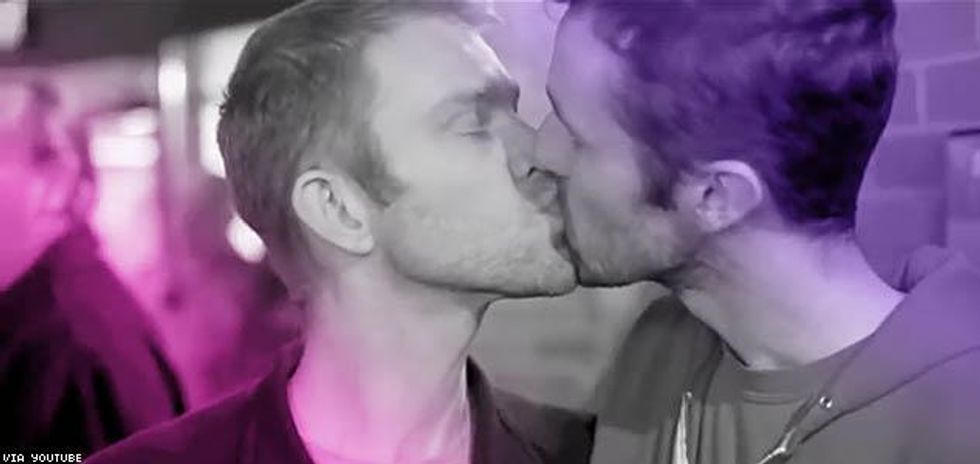
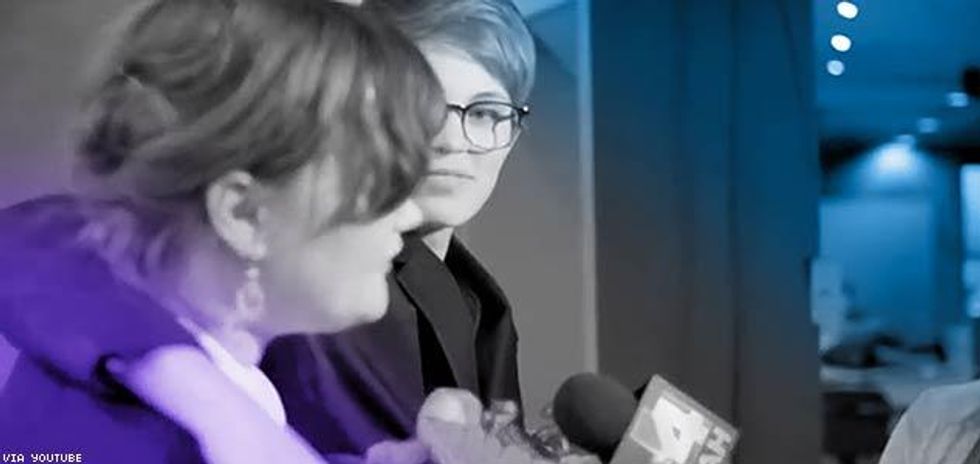








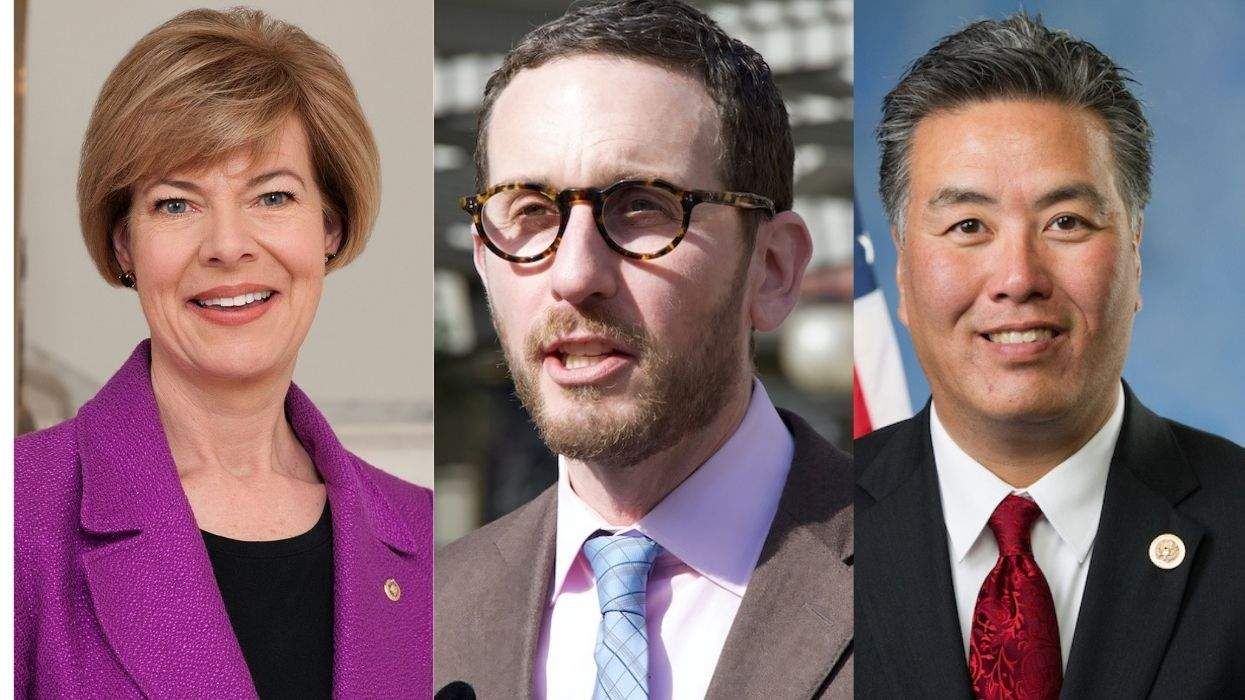






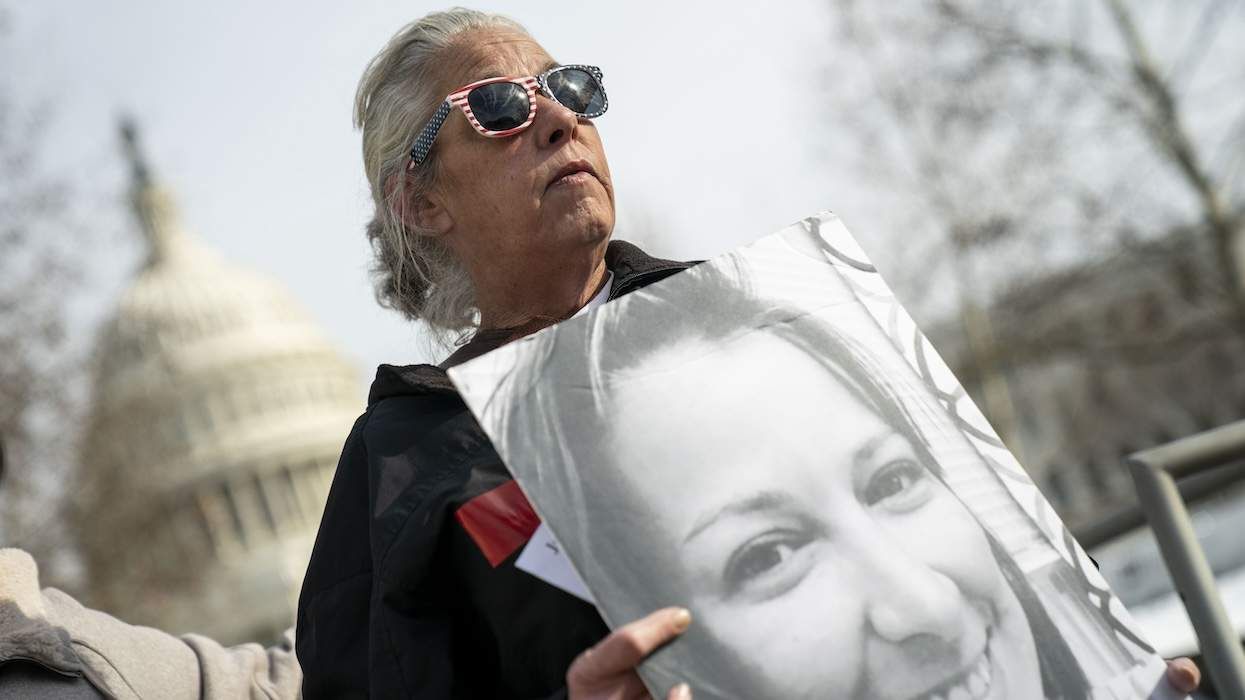


















































Charlie Kirk DID say stoning gay people was the 'perfect law' — and these other heinous quotes